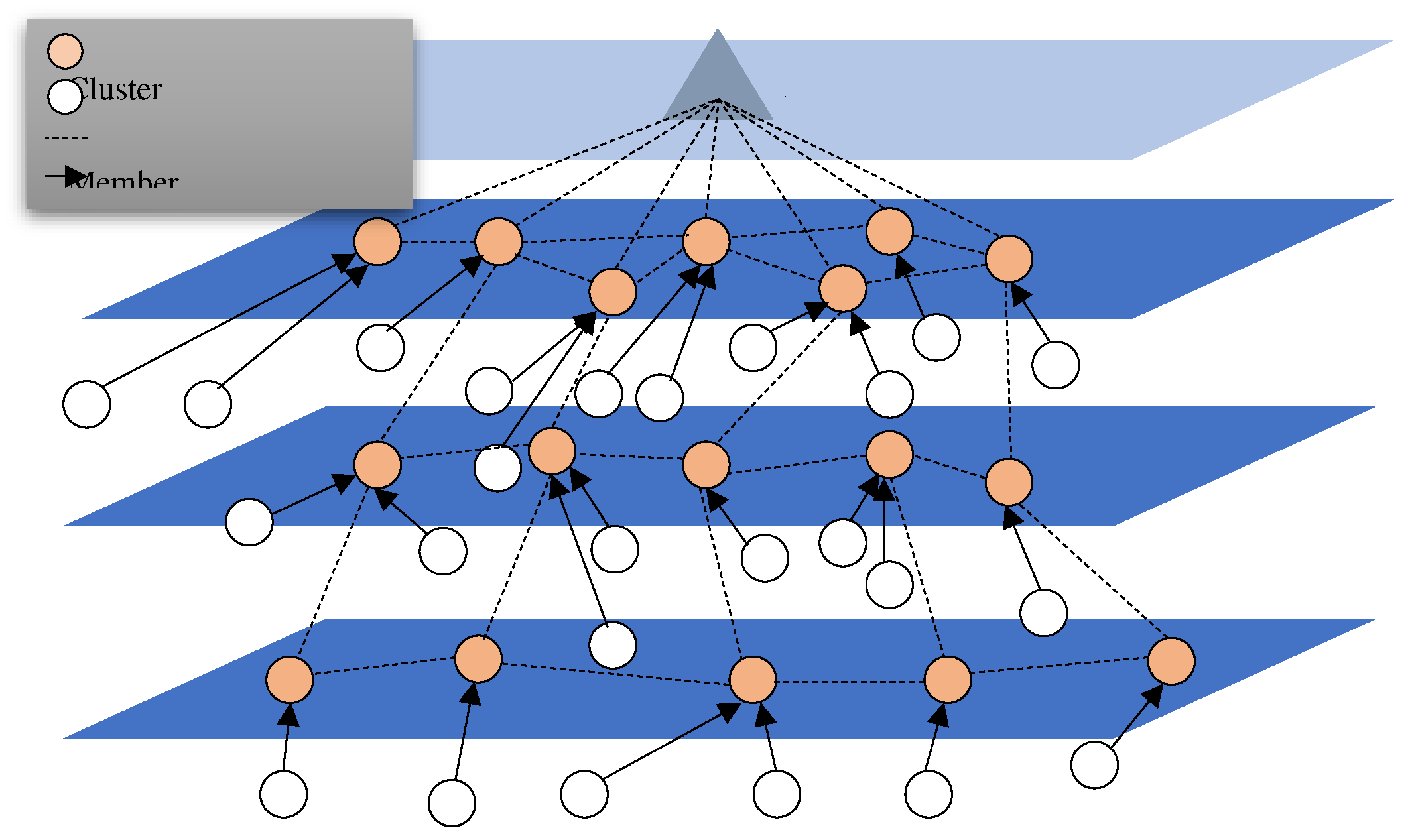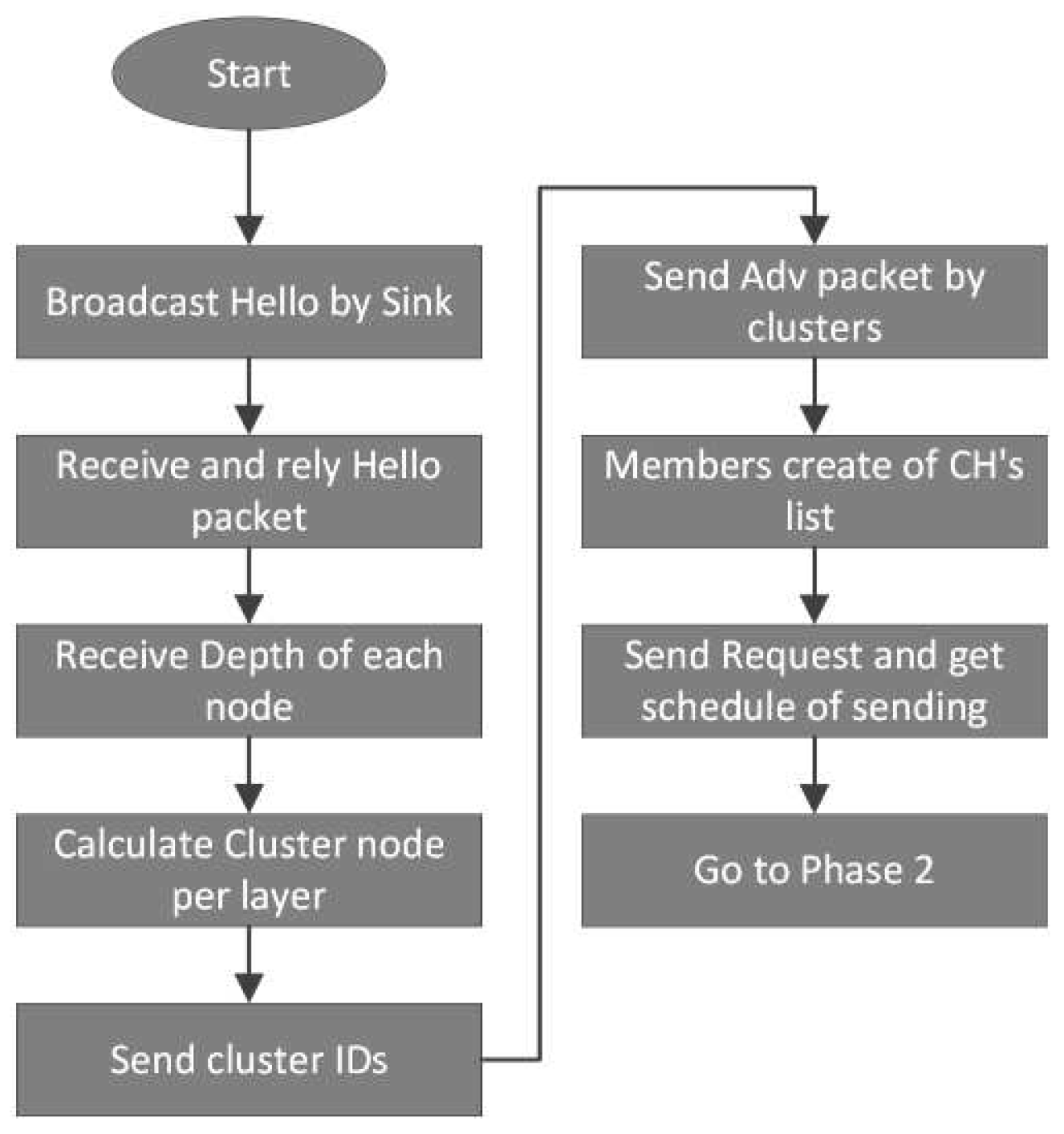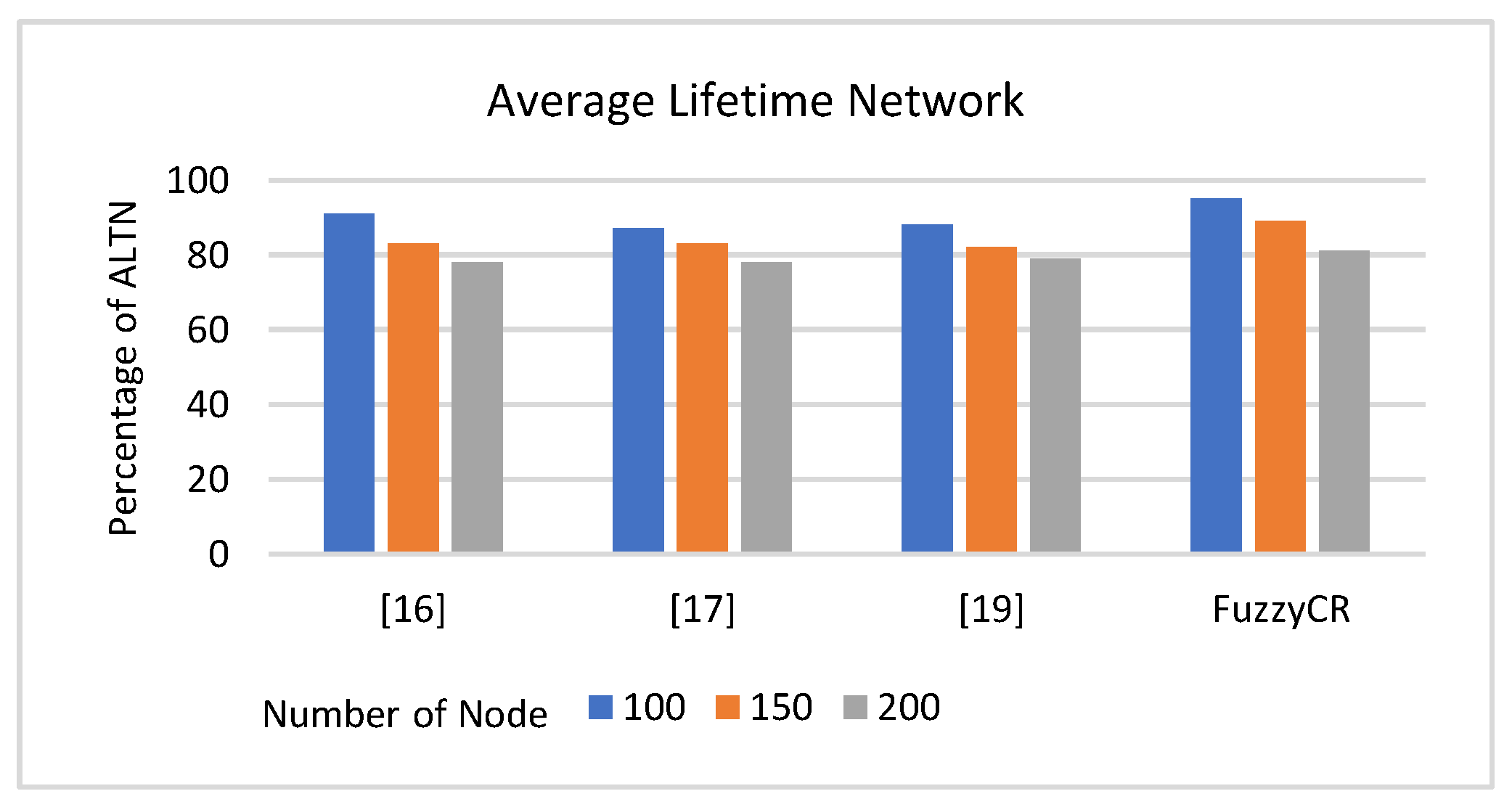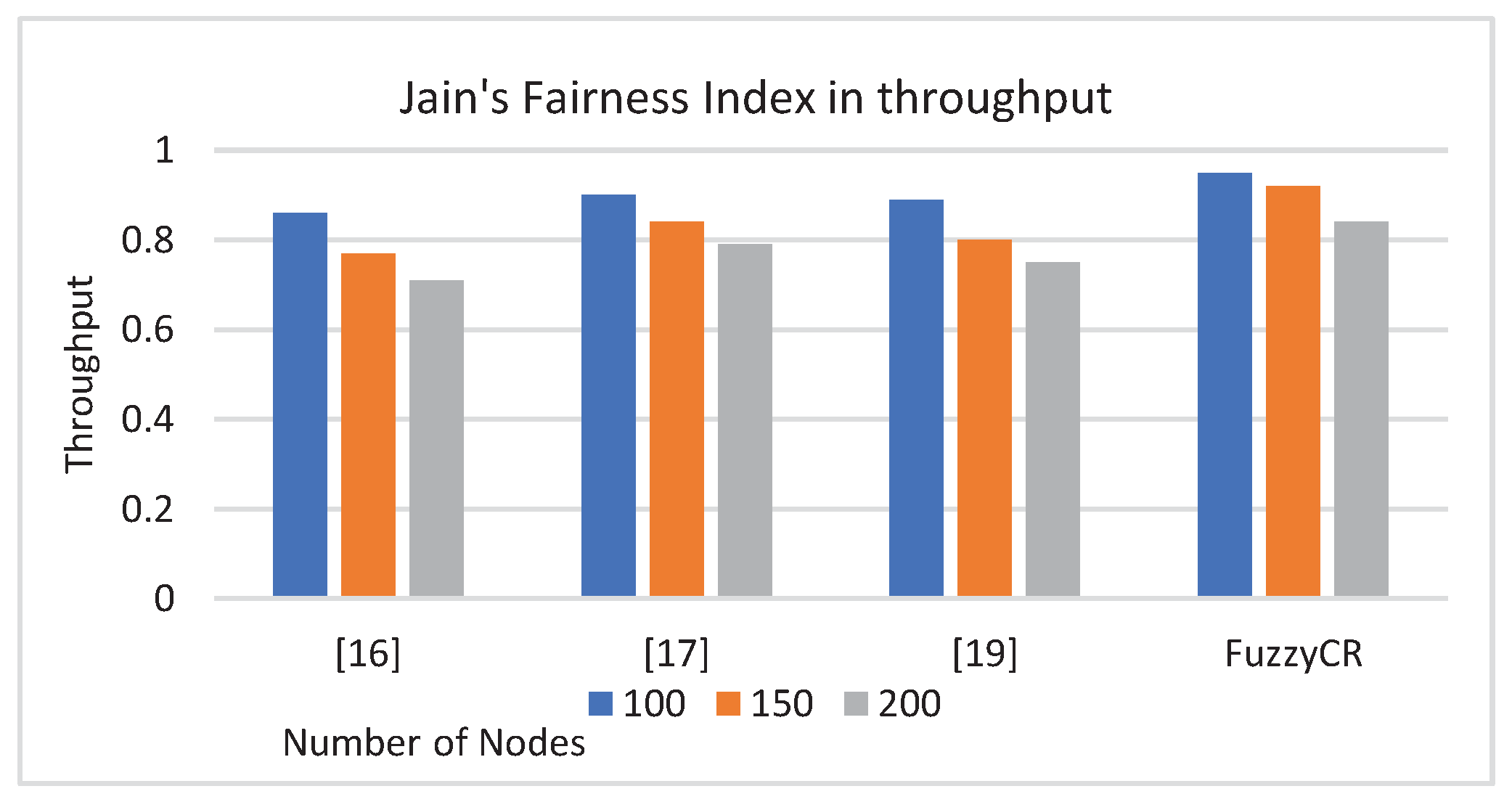Submitted:
16 December 2023
Posted:
18 December 2023
You are already at the latest version
Abstract
Keywords:
1. Introduction
2. Related works
2.1. Quality of Service in UIoT
- Adaptive Modulation and Coding: Adjusts modulation and coding schemes according to channel conditions, balancing data rate and error performance for reliable communication in varying underwater environments [6].
- Acoustic Beamforming: Directs acoustic signals in specific directions, reducing interference and enhancing signal strength and communication reliability [7].
- Multi-Path Routing: Uses multiple paths for data packets to increase transmission reliability, compensating for potential path disruptions in dynamic underwater environments [3].
- Energy-Efficient Protocols: Focuses on conserving energy in underwater sensors with limited power resources, extending their operational lifespan and maintaining network integrity [8].
- Prioritisation of Data: Implements protocols to prioritise transmitting time-sensitive or critical data, reducing latency and improving response times in crucial scenarios [3].
- Buffer Management: Manages data packets in transmission queues to handle high latency and variable rates in underwater communications, minimising packet loss and delay [3].
- Cross-Layer Design: Optimises multiple communication protocol layers simultaneously for significant improvements in network performance and overall quality of service [9].
- Each method plays a vital role in mitigating the intrinsic challenges of underwater communication, thereby enhancing the quality of service in UIoT networks.
2.2. Clustering in UIoT
- Energy Efficiency: By minimising direct transmissions to the distant base station and routing through the CH, the energy expenditure is significantly reduced.
- Scalability: Clustering allows the network to scale effectively, as adding new nodes causes minimal disruption.
- Load Balancing: Efficiently distributing the role of the CH among various nodes helps balance the energy consumption across the network.
2.3. Cluster-Based Routing in UIoT
- Intra-cluster Communication: Within a cluster, nodes typically use short-range, low-power transmissions to send data to their CH, reducing energy consumption and minimising interference.
- Inter-cluster Communication: CHs relay data between clusters or to the surface station. This often involves longer-range transmissions, which are more energy-intensive but restricted to fewer nodes (CHs).
- Dynamic Cluster Formation: To adapt to the changing underwater environment, clusters may be dynamically reformed and CHs rotated to distribute energy consumption evenly.
2.4. Recent Quality of Service-Based Routing Protocol
- The study in [13] developed a routing protocol for IoT networks that excels in energy efficiency and minimises latency. This protocol considers several crucial elements, such as node energy levels, transmission distances, data sizes, and routing alternatives. Evaluating these factors ensures data travels via the most effective routes, thereby preventing the overburdening of energy-constrained nodes.
- In [14], a novel strategy was formulated to address energy wastage in IoT networks, mainly focusing on ‘network holes’ created due to substantial distances between nodes. This strategy involves a guard-based flooding technique, proving to be more effective in filling these gaps than other existing methods.
- The research in [15] proposed a unique routing protocol for underwater sensor networks that surpasses others in energy efficiency. It employs multi-hop communications and underwater relay nodes for data transfer, consequently reducing the energy consumption of individual nodes. This protocol has also demonstrated superior performance in total energy conservation compared to other renowned protocols.
- In [16], innovative routing protocols were developed for underwater IoT devices to enhance energy efficiency and QoS. These protocols leverage a clustering strategy to organise devices and employ opportunistic routing for data transmission across clusters. Their performance has been shown to exceed existing protocols regarding energy efficiency and QoS.
- The DSPR protocol, as mentioned in [17], represents a novel approach in underwater IoT networking, targeting improvements in energy efficiency and reliability through directional routing and selective power regulation. However, further empirical testing is required to evaluate its efficacy in real-world scenarios.
- The study in [18] introduced an advanced technique for localising underwater IoT devices, integrating magnetic, optical, and acoustic communications. This method shows greater accuracy than previous techniques, yet more research is needed for practical application development.
- In [19], a fresh clustering protocol for underwater IoT networks was proposed, utilising the k-means algorithm for cluster head selection. This protocol’s simplicity and effectiveness are notable, but further comparative studies with other underwater IoT-specific clustering protocols are essential for a comprehensive assessment.
3. Proposing method
3.1. Clustering
3.2. Routing
- Start
- The Sink sends a broadcast message on the network. (nodes get their direct distance to the Sink)
- Each node sends its distance to the Sink, Depth and energy in a packet to its neighbours.
- The data-sending node selects the next best step by fuzzy calculation of its neighbouring nodes based on the parameters of residual energy, direct distance to the Sink, Depth, and number of hops.
- Step four is repeated until the data reaches the Sink.
- After the const of T seconds in the network, the status of the network nodes is determined using another Fuzzy to decide which nodes carry a large traffic load and are at risk of being lost. This fuzzy approach will be based on the traffic load rate on the node in the recent sampling period, the amount of remaining energy, the number of neighbours available to the node and the throughput criterion. If a node has more neighbours, it can get the chance of not being in the relay path and save energy.
- When the status of the nodes is determined, the neighbouring nodes will be informed of their position, and if it was better than the next step T seconds ago, they will change their next step.
- Nodes forward the packet to some high priority forwarding in their list. After receiving the packet, each node checks whether the packet received an Ack from other neighbours.
- After stopping the 2xRTT time, if it has not received the Ack packet, it will resend it; otherwise, it will delete it.
3.3. Fuzzy calculation
- Network residual energy
- Distance between nodes
- Depth: In underwater sensor nodes, by default, all nodes have a depth gauge, and Thay have not applied any additional costs to the network.
- Number of Neighbours: Each node constructs a list of accessible nodes in its vicinity based on the packets received from neighbouring nodes.
- And w1, w2, w3, w4 is the load (or weight) prepared on the algorithm.
- is the residual energy of each node in the network.
- is the distance between nodes i and j.
- is the Depth of node.
- NN is the number of accessible neighbours.

4. Simulation
4.1. Network Lifetime
4.2. JFI test in link’s throughput
4.3. Energy efficiency and fairness
| Network Size | [16] | [17] | [19] | FuzzyCR |
| 100 | 35.22 | 36.34 | 37.11 | 42.17 |
| 150 | 36.87 | 37.18 | 39.83 | 45.03 |
| 200 | 37.07 | 38.55 | 41.28 | 47.8 |
5. Conclusion
References
- K. K. Gola, M. Dhingra, B. Gupta, and R. Rathore, “An empirical study on underwater acoustic sensor networks based on localisation and routing approaches,” Adv. Eng. Softw., vol. 175, p. 103319, 2023. [CrossRef]
- B. Ragavi, V. Baranidharan, A. John Clement Sunder, L. Pavithra, and S. Gokulraju, “A Comprehensive Survey on Different Routing Protocols and Challenges in Underwater Acoustic Sensor Networks,” Recent Adv. Metrol., pp. 309–320, 2023. [CrossRef]
- J. Jiang, G. Han, and C. Lin, “A survey on opportunistic routing protocols in the Internet of Underwater Things,” Comput. Networks, vol. 225, p. 109658, Apr. 2023. [CrossRef]
- S. A. H. Mohsan, Y. Li, M. Sadiq, J. Liang, and M. A. Khan, “Recent advances, future trends, applications and challenges of internet of underwater things (iout): a comprehensive review,” J. Mar. Sci. Eng., vol. 11, no. 1, p. 124, 2023. [CrossRef]
- E. S. Ali, R. A. Saeed, I. K. Eltahir, and O. O. Khalifa, “A systematic review on energy efficiency in the internet of underwater things (IoUT): Recent approaches and research gaps,” J. Netw. Comput. Appl., vol. 213, p. 103594, Apr. 2023. [CrossRef]
- X. Cui, P. Yan, J. Li, S. Li, and J. Liu, “Deep reinforcement learning-based adaptive modulation for OFDM underwater acoustic communication system,” EURASIP J. Adv. Signal Process., vol. 2023, no. 1, p. 1, 2023. [CrossRef]
- D. A. Cuji and M. Stojanovic, “Transmit Beamforming for Underwater Acoustic OFDM Systems,” IEEE J. Ocean. Eng., 2023. [CrossRef]
- S. Bharany, S. Sharma, N. Alsharabi, E. Tag Eldin, and N. A. Ghamry, “Energy-efficient clustering protocol for underwater wireless sensor networks using optimised glowworm swarm optimisation,” front. Mar. Sci., vol. 10, p. 1117787, 2023. [CrossRef]
- Z. Zhu, Y. Zhou, R. Wang, and F. Tong, “Internet of Underwater Things Infrastructure: A Shared Underwater Acoustic Communication Layer Scheme for Real-world Underwater Acoustic Experiments,” IEEE Trans. Aerosp. Electron. Syst., 2023. [CrossRef]
- K. Sathish et al., “Reliable Data Transmission in Underwater Wireless Sensor Networks Using a Cluster-Based Routing Protocol Endorsed by Member Nodes,” Electronics, vol. 12, no. 6, p. 1287, 2023. [CrossRef]
- M. Faheem et al., “QoSRP: A cross-layer QoS channel-aware routing protocol for the internet of underwater acoustic sensor networks,” Sensors (Switzerland), vol. 19, no. 21, 2019. [CrossRef]
- M. Al-Bzoor, A. Musa, K. Alzoubi, and T. Gharaibeh, “A Directional Selective Power Routing Protocol for the Internet of Underwater Things,” Wirel. Commun. Mob. Comput., vol. 2022, pp. 1–13, Feb. 2022. [CrossRef]
- W. Xu, R. He, and C. Yu, “Energy Efficient Routing for Multi-modal Underwater Wireless Sensor Networks,” in 2021 International Conference on Security, Pattern Analysis, and Cybernetics(SPAC), Jun. 2021, pp. 516–520. [CrossRef]
- U. Draz et al., “Energy efficient watchman based flooding algorithm for IoT-enabled underwater wireless sensor and actor networks,” ETRI J., vol. 43, no. 3, pp. 414–426, Jun. 2021. [CrossRef]
- K. Bhattacharjya, S. Alam, and D. De, “CUWSN: energy efficient routing protocol selection for cluster based underwater wireless sensor network,” Microsyst. Technol., vol. 28, no. 2, pp. 543–559, Feb. 2022. [CrossRef]
- V. G. Menon, D. Midhunchakkaravarthy, A. Sujith, S. John, X. Li, and M. R. Khosravi, “Towards Energy-Efficient and Delay-Optimized Opportunistic Routing in Underwater Acoustic Sensor Networks for IoUT Platforms: An Overview and New Suggestions,” Comput. Intell. Neurosci., vol. 2022, pp. 1–15, Mar. 2022. [CrossRef]
- D. R. Kesari Mary, E. Ko, D. J. Yoon, S.-Y. Shin, and S.-H. Park, “Energy Optimisation Techniques in Underwater Internet of Things: Issues, State-of-the-Art, and Future Directions,” Water, vol. 14, no. 20, p. 3240, Oct. 2022. [CrossRef]
- R. A. Khalil, N. Saeed, M. I. Babar, T. Jan, and S. Din, “Bayesian Multidimensional Scaling for Location Awareness in Hybrid-Internet of Underwater Things,” IEEE/CAA J. Autom. Sin., vol. 9, no. 3, pp. 496–509, Mar. 2022. [CrossRef]
- L. Li, Y. Qiu, and J. Xu, “A K-Means Clustered Routing Algorithm with Location and Energy Awareness for Underwater Wireless Sensor Networks,” Photonics, vol. 9, no. 5, p. 282, Apr. 2022. [CrossRef]
- R. W. L. Coutinho and A. Boukerche, “OMUS: Efficient Opportunistic Routing in Multi-Modal Underwater Sensor Networks,” IEEE Trans. Wirel. Commun., pp. 1–1, 2021. [CrossRef]
- Q. Wang, J. Li, Q. Qi, P. Zhou, and D. O. Wu, “An Adaptive-Location-Based Routing Protocol for 3-D Underwater Acoustic Sensor Networks,” IEEE Internet Things J., vol. 8, no. 8, pp. 6853–6864, Apr. 2021. [CrossRef]




| Protocol | Algorithm | Method | Performance indicators | |||
| Energy Efficiency | Lifetime | QoS | Efficiency | |||
| [13] 2021 |
Improved Energy Efficiency Routing Protocol | Balancing traffic load between nodes with higher residual energy | ✓ | Low | Low | Low |
| [14] 2021 |
Guard-based flood pattern | Reducing energy consumption by solving the problem of holes due to the long distance of the route. | ⨯ | High | Low | Low |
| [15] 2022 |
Cluster approach based on energy-efficient routing protocol | Reducing energy consumption and the possibility of network development with multi-step communication. | ✓ | Low | Low | High |
| [16] 2022 |
Opportunistic location-based routing protocols | Increasing energy efficiency and reducing latency. | ✓ | Low | High | Low |
| [17] 2022 |
Step Selective Power Routing Protocol | Increase selection accuracy to reduce energy consumption and improve the delivery ratio. | ✓ | Low | Low | Justly |
| [18] 2022 |
Combining Bayesian multidimensional scaling localisation | Increasing the accuracy of hybrid communication in underwater Internet of Things. | ⨯ | High | Low | Justly |
| [19] 2022 |
k-means algorithm | Optimal cluster head selection based on the distance to the base station | ✓ | High | Low | Justly |
| No | Rules |
| 1 | |
| 2 | |
| 3 | |
| 4 | |
| 5 | |
| 6 | |
| 7 | |
| 8 | |
| 9 | |
| 10 | |
| 11 | |
| 12 | |
| 14 | |
| 15 | |
| 16 |
| Node ID | Remaining Energy(J) | Distance to sink(m) | Depth (m) | Number of Neighbors(n) | |
| 17 | 26.6 | 67 | 32 | 5 | 0.32 |
| 6 | 36.9 | 76 | 43 | 4 | 0.28 |
| 22 | 28.5 | 53.3 | 51 | 3 | 0.39 |
| 73 | 41.6 | 48.6 | 27 | 4 | 0.48 |
| 99 | 32.7 | 66.09 | 40 | 3 | 0.31 |
| 18 | 37.8 | 80.01 | 39 | 6 | 0.44 |
| 4 | 22.9 | 49 | 50 | 4 | 0.37 |
| Parameters | Value (s) |
| Network topology | Random position |
| Deployment area | 1000 1000 500 m3 |
| Initial node energy | 50 J |
| Initial sink energy | 50 kJ |
| Number of nodes | 100, 150, 200 |
| Communication range | 150 m |
| Acoustic transmission range(sink) | 200 m |
| Channel | Underwater channel |
| Sink position | Surface (500 500 0) |
| Iterations | 10 |
| Packet size | 50 bytes |
| DIO/ DAO/ DAO-Ack / DIS pkt size | 4 bytes |
| Packet generation rate | pkt/s |
| Simulation time | 1000 s |
| Antenna | Omni-directional |
| Network Size | [16] | [17] | [19] | FuzzyCR |
| 100 | 407 | 419 | 438 | 492 |
| 150 | 306 | 343 | 334 | 489 |
| 200 | 268 | 266 | 286 | 477 |
|
Network Size in FuzzyCR |
Packet inter-arrival time | ||
| s | s | s | |
| 100 | 437 | 456 | 493 |
| 150 | 393 | 421 | 489 |
| 200 | 311 | 386 | 477 |
|
Network Size in FuzzyCR |
Packet inter-arrival time | ||
| s | s | s | |
| 100 | 83.12 | 88.19 | 91.56 |
| 150 | 79.78 | 82.45 | 89.32 |
| 200 | 73.25 | 77.11 | 86.14 |
Disclaimer/Publisher’s Note: The statements, opinions and data contained in all publications are solely those of the individual author(s) and contributor(s) and not of MDPI and/or the editor(s). MDPI and/or the editor(s) disclaim responsibility for any injury to people or property resulting from any ideas, methods, instructions or products referred to in the content. |
© 2023 by the authors. Licensee MDPI, Basel, Switzerland. This article is an open access article distributed under the terms and conditions of the Creative Commons Attribution (CC BY) license (http://creativecommons.org/licenses/by/4.0/).




